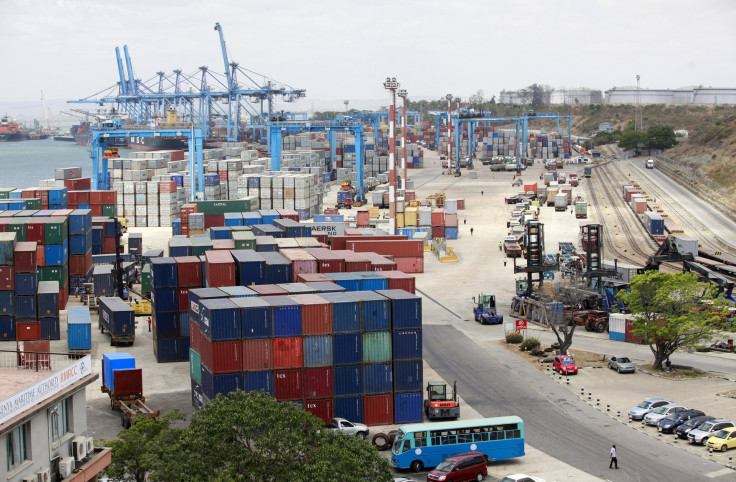War Of The Ports: Kenya To Streamline Mombasa Operations As Tanzania Races To Catch Up

International trade has always been a complicated process for landlocked African countries such as Uganda and Rwanda, which have no other choice but to use neighbors' ports to send and receive goods shipped via the Indian Ocean.
The two main byways are Dar es Salaam in Tanzania, and Mombasa in Kenya. And, both ports are plagued by inefficiencies -- traffic jams at sea, cargo congestion on land, and mountains of red tape. But, a healthy competition has sprung up between the two countries, both of which want to attract as much trade as possible while maximizing profits, and are trying to outdo each other to streamline operations.
In a bold move sure to curry favor with its landlocked neighbors, Kenya is easing trade operations by cutting out the middle man -- itself.
Beginning in August, Rwanda and Uganda will be allowed to levy customs duties on their own goods as soon as they are cleared upon arrival in Mombasa. This will radically streamline the current system, as Ugandan and Rwandan importers are often hamstrung by paperwork at the Kenyan port in order to clear their cargo, and then are forced to pay import duties when crossing from Kenya to their own country.
"Once cleared at the port, there will be no stoppages at borders and checkpoints along the corridor," said Beatrice Memo, customs commissioner for the Kenya Revenue Authority, according to Reuters.
The change is part of a broader push, spearheaded by Kenyan President Uhuru Kenyatta, to make Mombasa more efficient and attractive to international traders. The president aims to concentrate customs paperwork at Mombasa rather than in the capital city of Nairobi, upgrade cargo-weighing procedures, improve transit infrastructure and digitize the clearing process.
But the decision to give Uganda and Rwanda more autonomy at the port has come up against steadfast criticism from Kenyan clearing and customs officials who profit from the red tape at Mombasa. The Kenya International Freight and Warehousing Association, for instance, argues that half a million jobs will be lost to Uganda and Rwanda as a result of the new decision.
Tanzania has good reason to worry about these new upgrades. Its port at Dar es Salaam handled about 12.1 million tons of cargo last year and it has long been trying to catch up with Mombasa, which handled 21.9 million tons of cargo in the same period, according to Bloomberg.
But, Dar es Salaam struggles to accommodate its current traffic and it is not uncommon for large cargo ships to wait for more than a week before they can berth. To address these problems, the country will spend about $211 million over the next year to streamline operations. And, if all goes according to plan, the return on investment could be quite high.
The World Bank reported, in May, that "in 2012, the total global welfare loss resulting from inefficiencies at the port was estimated to reach a value of US$ 1.8 billion for the Tanzanian economy and US$ 830 million for the neighboring countries."
But Mombasa -- Africa's second-largest container port on the eastern coast, after Durban in South Africa -- seems likely to keep its lead over Dar es Salaam for the foreseeable future, especially as Rwanda and Uganda reap the benefits of Kenya's new policies.
And while Tanzania and Kenya are on opposite ends in this struggle for port superiority, it seems to be the the kind of contest where everyone wins.
Intra-continental trade among African countries is sorely lacking -- making up about 10 percent of Africa's total international trade volume -- and this has been a serious detriment to development across regions. And, any move to make exchanges more efficient will be a boon to economic growth for all countries involved, regardless of which port eventually gains the upper hand.
© Copyright IBTimes 2024. All rights reserved.





















